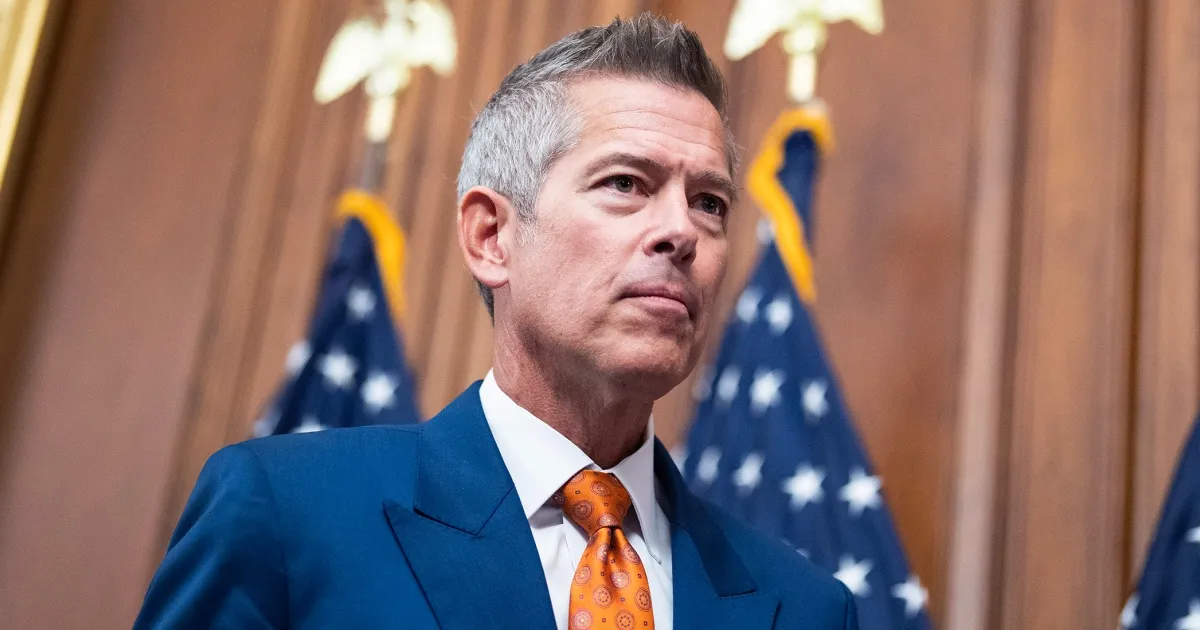
Transportation Secretary Sean Duffy announced on Tuesday that parts of the U.S. airspace may need to be closed if the ongoing government shutdown continues to exacerbate staffing shortages. As the shutdown enters its second month, essential workers, including air traffic controllers, have been forced to work without pay, resulting in a significant shortfall of between 2,000 to 3,000 controllers.
Duffy expressed grave concerns during a news briefing with the SEPTA rail system, stating, “If you bring us to a week from today, Democrats, you will see mass chaos. You will see mass flight delays, mass cancellations, and you may see us close certain parts of the airspace because we just cannot manage it.” This alarming statement highlights the potential implications of the shutdown on air travel safety and efficiency.
Since the government shutdown began, flight delays and cancellations have surged at airports across the nation, with the White House attributing the crisis to Democratic opposition. House Democratic Leader Hakeem Jeffries countered these claims, asserting that his party will not back a partisan Republican spending bill that undermines healthcare for Americans. “That’s been our position week after week after week, and it will continue to be our position,” Jeffries stated in a recent release.
Jeffries highlighted the current open enrollment period, where millions of Americans are facing skyrocketing premiums, co-pays, and deductibles, often increasing by $1,000 to $2,000 per month. “The Republican healthcare crisis is crushing the American people,” he added, emphasizing the need for a more equitable solution.
During the briefing, Duffy remarked on the challenges faced by air traffic controllers, stating, “Make no mistake, the longer this goes on, every day these hardworking Americans have bills they have to pay.” He raised concerns about the difficult choices that controllers must make, such as whether to continue working without pay or seek alternative employment to support their families.
Duffy further noted that the situation at U.S. airports will deteriorate as the shutdown persists. He emphasized that while flight delays and cancellations are necessary to maintain safety, the ongoing shutdown injects an increased level of risk into the air traffic system. “It would be dishonest to say that more risk is not injected into the system,” he said.
The Transportation Security Administration (TSA) confirmed that airports, particularly in Houston, are experiencing longer-than-normal delays in security screening due to staffing shortages. “While the vast majority of our nationwide operations remain minimally impacted by the government shutdown, occasional delays are to be expected,” the TSA stated.
As the shutdown continues, the impact on the TSA workforce is expected to worsen, making it increasingly challenging for employees to report to work when they are not receiving their paychecks. On Tuesday, over 1,800 flights within, to, and from the U.S. were delayed, with more than 50 cancellations reported, according to FlightAware.com.
Newark Liberty International Airport and John F. Kennedy International Airport were particularly affected, reporting over 150 delays and 14 cancellations combined. Additionally, arrivals at Phoenix Sky Harbor International Airport experienced delays of nearly one hour due to staffing issues, according to the Federal Aviation Administration.
The weekend preceding this announcement marked the most challenging travel conditions yet, with over 5,000 flights delayed on Sunday alone. The ongoing government shutdown poses not only logistical challenges but also raises serious concerns about the long-term effects on air travel safety and the well-being of essential workers in the aviation sector.